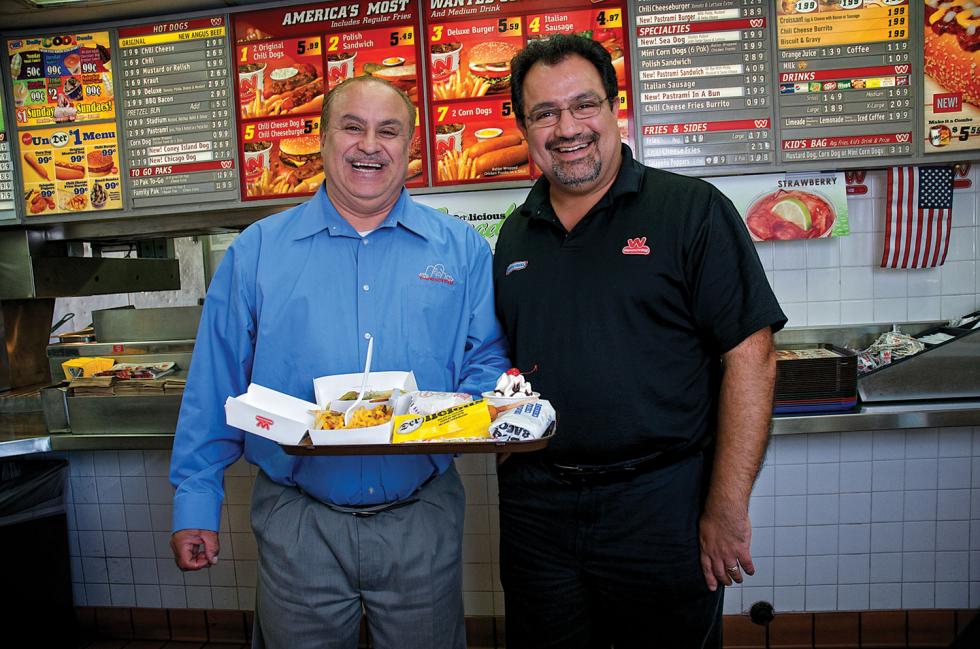The question of value is crucial in business, whether it’s how much you should pay to acquire a competitor, the fair price for that new piece of equipment or how big a share of your company you can pass along to your heirs.
But value is a tricky notion, and it depends on circumstances. â?¨A glass of water isn’t worth much — unless you’re lost in the desert.
The economic downturn is one daunting big desert when it comes to changing the value of a business. It has dried up spending by customers, chilled the climate in which rents are set and made doing business generally more risky. At the same time, lenders also are under economic pressure, which makes them less willing to take risks.
The landscape is so different from just a few years ago that it’s hard to even use some typical business valuation tools, such as the sales price of similar businesses on the open market. “There aren’t a lot of market transactions to look at, and looking at year-old transactions isn’t a good indicator when the market is changing,” says Ted Mitchel, a director with accounting firm Ueltzen & Co. LLP in Sacramento.
Valuing a business is “all about projecting the future, and in normal times history can be a great guide to the future,” says Jeff Rogers, a partner and director of consulting services with Perry-Smith LLP in Sacramento. “That’s not the case now.”
If you have access to cash, the downturn could create opportunities to buy when values are down and businesses are scrambling for cash flow.
But a lot of businesses are far from flush. The restaurant industry has been especially hard hit.
Just ask Haidar Junaid and Kamran Ghazi-Tehrani. Each man owns two Sacramento-area outlets of the Wienerschnitzel restaurant chain, and each is feeling the economic pain and how it’s hurting values.
Junaid sold another Wienerschnitzel store about a year and a half ago, just months before the downturn took a toll on sales. Two years ago, the store had sales of about $55,000 a month; now, it’s in the low $40,000s. By selling when he did, he turned a profit, but at today’s valuations he would have lost money, he says.
Ghazi-Tehrani has explored selling a store, but at current values the price he would get wouldn’t cover the loans — secured by his home — that he took out to buy it. Margins are down and so are sales. “I can’t afford staying open, I can’t afford to sell and if I close, I lose my house,” he says with a laugh, but it’s clear he’s only half-joking.
Both men have worked over the years with Aron Culver, a senior vice president at business broker BTI Group in Roseville. (“He’s the one who had the pleasure of telling me,” says Ghazi-Tehrani, that selling one of his stores at current value would produce a loss.) Culver says conditions are tough in most business sectors, but especially for restaurants.
“This is the first time I’ve seen, in 14 years in the business, multiple restaurants on the market for free.”
Aron Culver, senior vice president, BTI Group
“This is the first time I’ve seen, in 14 years in the business, multiple restaurants on the market for free,” he says. “They say ‘just assume the lease and other contracts.’”
And even for free, they may not sell. Wienerschnitzel franchisees in the region often offer each other a chance to buy franchises rather that putting their stores on the open market, Junaid says, and in September one owner offered him a store for nothing. He turned the deal down, too wrapped up in the difficulties of running his stores in Citrus Heights and Rancho Cordova to take on a new store. “I used to work half the hours and make twice the money,” he says.
When you can’t sell a business with a price tag of zero dollars you know there are problems with valuation. Some of those problems feed on themselves. For instance, the downturn slowed business, which reduces cash flow and values. Because values are down, fewer businesses are sold. With fewer buyers and sellers in the market, there are fewer transactions to use as a way to estimate value. Business owners who might have considered selling decide to wait, which means more of the deals that do close involve businesses in trouble — and thus with lower values.
Transaction data shows that between the downturn and tighter credit, far fewer businesses are selling. Sales of small businesses in California were down almost 34 percent in the first nine months of 2009, compared to the same period in 2008, according to BizBen.com, a database and resource for small businesses. That fall follows a decline of about 19 percent from 2007 to 2008. BizBen.com uses county recorder data and business broker surveys to track purchases of businesses with $10 million or less in annual revenue.
The plunge is unprecedented in the memory of Peter Siegel, founder of BizBen. “I’ve been in the business 25 years and I’ve never seen anything like it,” he says. “Almost every factor that we track in the sale of small businesses is off or affected.”
And as with real estate, the falling values of businesses have created a tension in the market as well-positioned buyers hang back to see if they can get an even better bargain. “Nobody wants to buy at a present-day value when it may keep heading down,” Culver says.
Various methods are used to calculate the value of a business, Mitchel says, and the downturn has skewed all of them. The three major approaches are market value, asset value or cash flow, but with so much uncertainty in the market it makes sense to look at all three and compare the results.
Market value looks at what similar businesses have sold for, but it’s not as simple as comparing three-bedroom homes or a specific car model at different dealers. There may not be many businesses in a particular industry and niche, and probably an even smaller number have changed hands. “Those market transactions are getting pretty old,” Mitchel says, and conditions have changed a lot, making valid comparisons difficult.
Another approach is to calculate a value based on cash flow, factoring in costs and targeted rate of return on investment, inflation, risk and other variables. “When you’re buying a business, you’re essentially buying the future cash flow,” Mitchel says. A value often is expressed as a multiple, say, four times a firm’s annual cash flow. But sales are down and risk is up, so the cash flow figure or the multiple may be smaller in today’s market.
“Looking at year-old transactions isn’t a good indicator when the market is changing.”
Ted Mitchel, director, Ueltzen & Co. LLP
That uncertainty can lead to the third approach, assessing the value of assets. But that sometimes involves bringing in specialists to judge the value of business equipment, and a business with lower sales may be having trouble making payments if that equipment was financed.
The big picture? Due diligence for buyers is more difficult. “The data is tougher to get, and you may default to an asset approach sooner than you would in a normal market,” Mitchel says.
“Ultimately, what it comes down to is what a willing buyer is willing to pay and a willing owner is willing to let it go for,” Culver says.
Lower values make for bargains if you’re a buyer, but tight credit means you’d better have cash — or cash flow.
Joseph LeRoy, chief executive of Sacramento Container Corp., is in the right niche at the right time, supplying cardboard boxes to food and beverage processors. Sales this year of about $63 million are up nearly 25 percent, and he’s projecting $75 million in 2010. He expected to hire about 40 people once a new piece of equipment was installed at the plant at McClellan, where he already employs about 130. “We haven’t had any problem with financing,” he says, though he’s paying a higher interest rate.
Haidar Junaid and Kamran Ghazi-Tehrani own Sacramento-area
Wienerschnitzel restaurants. Both say they’d lose money if they
tried selling their business based on today’s valuations.

Because of his firm’s positioning in the industry, LeRoy doesn’t see many acquisition targets, so he can’t take advantage of lower values there, but the downturn might bring him a bargain on a new piece of equipment. The company bought one such unit that can print in four colors in October 2008 for $2.2 million.
“This year we’ve had the same people in,” he says. “The same people, the same equipment but a year newer, and this time the price is $1.85 million,” and LeRoy says he’s in talks to buy a two-color unit for $1.6 million. “Like most people in this economy, the machinery manufacturers are not very busy.”
And you don’t have to be buying a business to take advantage of lower values; you could be giving one away to your family.
The lowered values create an advantage in estate planning, says Mark Ullrich, managing partner with Ullrich Delavati CPAs in Woodland. The law limits the value of tax-free gifts, allowing $12,000 per person per year and a lifetime limit of $1 million. You can give away more assets when values are down, he says. A 1 percent share in the business might have been worth $12,000 two years ago and only $6,000 this year, so the owner can give away twice as big a slice without penalty.
“The most recent valuation I did was to take advantage of the lowered values now,” Ullrich says.
“I can’t afford staying open, I can’t afford to sell, and if I close, I lose my house.”
Kamran Ghazi-Tehrani, owner, Wienerschnitzel franchises
The effects of lower values aren’t always so clear, however, note Mitchel and Rogers. Both men sometimes calculate values for businesses that are the subject of legal action.
“You might have two parties in a dispute where one accuses the other of doing something that hurt the value of the business,” Rogers says. “The real challenge is trying to separate the loss of value that’s a result of the economy and the loss that’s the result of their actions. You’ve got more than one variable.”
The situation is frustrating for business owners such as Junaid and Ghazi-Tehrani, who say that conditions are ripe to buy but cash flow and financing are scarce.
“I see stuff out there, and I say ‘man!’” Ghazi-Tehrani says.
“Just in my neighborhood,” Junaid adds on an unusually busy Thursday afternoon in his Citrus Heights store, “there’s a Wendy’s, a [Burger King] and an Applebee’s all in one block, and two of them have drive-throughs.”
“If you have money to be able to buy one of these businesses at half off …” Ghazi-Tehrani muses. “I wish I had a rich uncle I could borrow money from.”
The economic picture in California is gloomier than that for the nation as a whole, so recovery may take longer here, but Siegel of BizBen.com, says there have been some early signs of a thaw in the market for business sales, which could push values back up. “Homes are coming back in some areas, and credit is loosening a little,” he says. “I honestly feel that by next spring we’ll see a somewhat normal market, unless something else unexpected happens.”
Are you selling your business?
Successfully selling a business requires preparation, attention to detail and organization. Most sellers badly underestimate how to prepare for and respond when a buyer comes along. As a rule of thumb, it takes 10 buyer inquiries to reach a potential and qualified buyer. It’s not that there is a shortage of buyers, but there is a shortage of competent, motivated buyers. So when you find one, you need to be ready. Here are five pitfalls to avoid:
Assuming you know what the buyer wants. Buying a business is a unique experience, and every transaction is different. Assuming you understand the wants and motivations of a buyer is bad practice because a smart buyer rarely reveals his or her true motives.
Failing to understand the buyer’s objectives and business needs. This is different than assuming you know what the buyer wants. If you can meet the need of the buyer, you will be on your way, even if the sales criteria may not ultimately be what the buyer set out for.
Improper presale planning and organization. There are so many steps to selling a business. Being organized and having all the right processes in place is the starting point to success. This includes compiling the legal forms and processes you want a buyer to sign, such as a confidentiality agreement, buyer financial statements and buyer disclosure.
Answering questions before they are asked. Be careful to understand questions, and provide the right answers. Otherwise, you may be answering a different question than the buyer is asking, and that could work against you.
Not allowing the buyer to feel some sense of control in the decision-making process. It’s standard practice for all parties to try to control the sales process. Most deals collapse because one party doesn’t understand what or why a question or process is being addressed at a given point in the transaction. Trust is one of the hardest components to create, but it is also the most important.
Andrew Rogerson is a Sacramento business broker and the author of “Successfully Sell Your Business: Expert Advice From a Business Broker.” He can be reached at 916.570.2674 or andrew-rogerson.com.
Recommended For You

Let’s Make a Deal
Business acquisitions are on the rise
If two words could sum up the collective attitudes of those who buy and sell businesses, they’d be “enough already.”

When the Walls Come Down
Clear Capital finds success in Tahoe's playground
When Kevin Marshall co-founded a real estate valuation firm in 2001, his first order of business was to bust down the walls.



